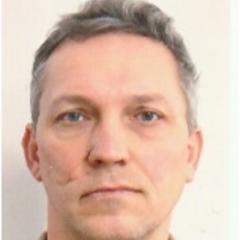Behavioural flexibility in the Neolithic: Technological organisation and raw material rationing at Boncuklu, Turkey
Abstract
The transition from the Epipalaeolithic to Neolithic in Turkey was marked by significant economic and cultural transformations. Of particular interest is the emergence of phenomena such as cultivation and herding. The Central Anatolian site of Boncuklu Höyük is ideally situated to examine this transitionary phase as it was occupied in the very earliest part of the Neolithic, and immediately precedes the nearby agricultural site of Çatalhöyük. In this talk I will present on the lithic analysis conducted on the predominately obsidian assemblage from Boncuklu, and explore how the beginnings of the transition to cultivation and herding in the region are manifest in the chipped stone assemblage. The broad-spectrum diet and raw material scarcity at Boncuklu required complex and varied technological adaptations. Of particular interest are the strategies of rationing, repurposing, and recycling of stone tools. When contrasted with occasional caches and grave-goods containing less rationed items, this rationing behaviour can also inform questions relating to the interplay between social, cultural and economic decision making at the site, and in the Neolithic of Turkey more broadly.
About the Presenter
Antoine Muller is a PhD candidate at the Hebrew University of Jerusalem, and recently completed his MPhil at the University of Queensland. His research includes the lithic analysis of the Boncuklu assemblage, improving methods of measuring lithic reduction intensity, and experimental investigations into the evolution of lithic technology with particular emphasis on cognition, skill, efficiency, and standardisation.
About Archaeology Working Papers
The Working Papers in Archaeology seminar series provides a forum for dissemination of archaeological research and ideas amongst UQ archaeology students and staff. All students are invited to attend the series and postgraduate students, from honours upwards, are invited to present their research. The aim is to provide opportunities for students, staff and those from outside UQ, to present and discuss their work in an informal environment. It is hoped that anyone interested in current archaeological directions, both within and outside the School and University, will be able to attend and contribute to the series.
2025 Upcoming Sessions
| Date | Presenter |
|---|---|
| 8th August | Nicholas Hadnutt and Lincoln Morse |
| 15th August | Jane McMahon |
| 22nd August | Martin Gibbs |
| 29th August | Karen Cooke |
| 5th September | Shoshanna Grounds |
| 12th September | Meg Walker |
| 19th September | Marc Cheeseman |
| 26th September | Ladislav Nejman |

